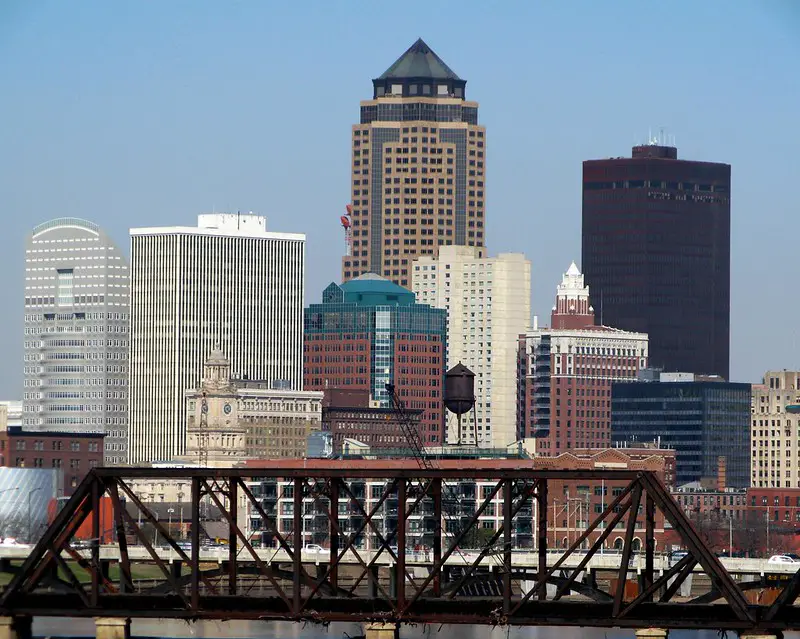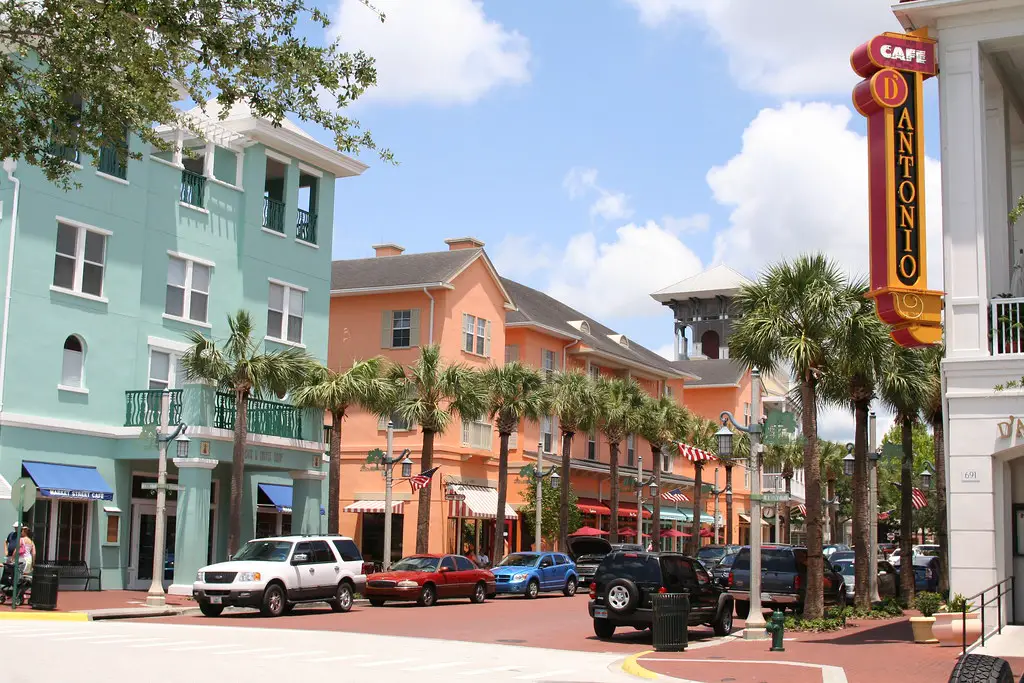Most homeowners assume foreclosure only happens over missed mortgage payments, but in some states, failing to pay a utility bill — including for trash collection — can be just as dangerous. Local governments and third-party contractors have the power to place liens on properties over relatively small debts. If left unpaid, those liens can escalate into foreclosure proceedings that threaten a person’s home. These are 13 states where a missed trash bill can turn into a devastating financial nightmare.
1. Pennsylvania

According to a 2023 investigation by NPR, Pennsylvania municipalities can impose liens on properties for unpaid trash bills — even if the debt is just a few hundred dollars. In some cases, those liens have led to full-blown sheriff’s sales where homeowners lost their properties altogether. The cities argue that it’s a matter of maintaining essential public services, but critics say the enforcement is often disproportionate to the size of the debt. Homeowners unaware of the lien can easily fall into a legal trap.
Once a lien is filed, fees and interest start compounding quickly. If not resolved, the city can move the property into tax sale proceedings, often without meaningful notice to the homeowner. Some families have lost homes worth six figures over debts as low as $300. Advocates are pushing for reform, but the law still allows foreclosure over something as basic as trash pickup.
2. Ohio

As reported by The Columbus Dispatch, certain Ohio municipalities include unpaid trash bills in property tax assessments. When those taxes go unpaid, the property can legally be certified for foreclosure, regardless of whether the mortgage is current. This creates a backdoor path where small utility debts snowball into home loss. The process is legal under state code and has impacted thousands of residents.
Property owners who are unaware their trash bills are being treated as tax liens can be blindsided. Once the debt is certified, interest and administrative fees pile on. In some counties, third-party debt buyers take over the liens and accelerate foreclosure timelines. Without legal counsel or intervention, homeowners can find themselves homeless over a utility bill.
3. Georgia

Georgia allows municipalities to impose “super liens” for unpaid utility services, including garbage collection. According to The Atlanta Journal-Constitution, these liens can take precedence over even mortgage lenders in some cases. Once recorded, they can lead to tax sales or auctions if not settled quickly. This legal authority has raised concerns among housing advocates and property rights groups.
Some Georgia cities contract private waste management companies to collect trash fees, and those companies are empowered to trigger lien proceedings. The amounts owed are often small, but the penalties and fees grow rapidly. Homeowners who miss a payment or two may not realize they’re at risk until it’s too late. With few legal protections in place, losing a home over trash is entirely possible.
4. Michigan

Michigan law allows local governments to attach unpaid trash collection fees to a homeowner’s property taxes. As Bridge Michigan reported, if those taxes go unpaid, the property can enter the foreclosure process within just two years. This applies even if the unpaid amount is relatively minor. Homeowners who are elderly or on fixed incomes are especially vulnerable to these hidden risks.
In cities like Detroit and Flint, this process has disproportionately affected low-income residents. A missed trash fee of less than $200 can spiral into a tax lien, and eventually, property seizure. The system is technically legal but widely criticized for lacking transparency. Activists have called for protections, but the laws remain in effect.
5. Missouri

In Missouri, cities can enforce delinquent trash bills through lien placement and foreclosure if the debt remains unpaid. While these actions are not always publicized, they are well within the rights of municipalities. Once a lien is filed, the homeowner must pay not only the original debt but also administrative fees and penalties. If ignored, the property can be sold at auction.
Many Missouri homeowners are unaware that unpaid utility fees can trigger legal consequences beyond service disruption. Some find out only when they receive notice of a pending tax sale. By that point, the redemption window may be narrow. Staying current on city-issued bills is essential to keeping your home secure.
6. Iowa

In Iowa, municipalities may certify unpaid trash and utility bills to a property’s tax roll. If the owner fails to pay the updated tax amount, the home can eventually be placed in a tax sale. This practice is legal under state code and has been used increasingly in recent years. Even a few months of missed payments can create long-term consequences.
Once a lien is sold to a third-party investor, the redemption timeline begins. If the owner does not repay the debt and added fees, the investor can claim title to the home. It’s a slow-moving process, but one that catches many off guard. Iowa residents should be alert to how cities handle small unpaid bills.
7. Texas

Texas allows cities and counties to issue liens for unpaid municipal services, which include trash collection in many jurisdictions. These liens can then be bundled into property tax enforcement proceedings. Once the lien is attached to the home, foreclosure becomes a possibility if payment is not made. The risk is higher in counties that rely on third-party collection agencies.
For residents behind on trash bills, this system can turn a basic oversight into a legal nightmare. Fees and interest rates are not always capped, and homeowners have limited tools to contest the charges. Even a modest home can be lost in the process. Staying on top of all local bills is crucial in Texas.
8. New Jersey

New Jersey municipalities often treat unpaid trash bills as a form of municipal debt and can attach them to a property’s tax account. This gives the city legal leverage to initiate foreclosure if the taxes — including the trash charges — are not paid. In many cases, residents don’t realize their trash debt has become a tax lien until they receive court paperwork. It’s a dangerous blind spot in homeownership.
The situation worsens when debt buyers purchase the liens and aggressively pursue legal remedies. These investors can quickly move for foreclosure unless the homeowner pays all fees, interest, and legal costs. Without state reform, the system is unlikely to change. New Jersey homeowners should closely monitor any municipal correspondence.
9. North Carolina

North Carolina allows cities to place liens on property for unpaid sanitation services. While these liens don’t always result in foreclosure, they do cloud the property title and can be enforced through court action. In some counties, repeated nonpayment has led to forced sales. Homeowners often don’t realize the severity until legal proceedings have already begun.
The state provides little consumer guidance on this issue, leaving residents to navigate a confusing system. Attorneys warn that even small balances can trigger aggressive enforcement over time. With limited oversight, local governments have broad discretion. Paying on time remains the safest way to avoid legal trouble.
10. Illinois

In Illinois, trash fees are often included in municipal utility bills, which are enforceable through liens. If those liens are not satisfied, the city can initiate tax sale procedures, especially in Cook County and surrounding areas. Foreclosure is not automatic, but it remains a real risk. Investors who purchase the lien gain legal rights to initiate court action if the debt is not repaid.
The threshold for triggering lien sales is often low, and penalties grow fast. Homeowners may assume a missed payment will simply lead to service disruption — but in some cases, it sets the stage for much worse. Keeping track of city service invoices is especially important in Illinois. Legal help may be needed to resolve disputes.
11. Florida

Florida law permits municipalities to issue code enforcement liens for unpaid garbage service fees. While cities don’t always pursue foreclosure immediately, they can over time — especially if the debt grows or is paired with other violations. Some cities have bundled unpaid sanitation charges into property tax liens, which are then sold to private investors. Homeowners who fail to respond can ultimately lose their homes.
Once the lien is sold, the redemption period varies by county. During this time, additional charges continue to accumulate. If the homeowner cannot repay the debt, the property can be seized and resold. Even in a state with strong homestead protections, this loophole poses a risk.
12. Maryland

Maryland jurisdictions may place liens for unpaid sanitation and trash collection fees, with the ability to enforce them through tax sales. Baltimore and other municipalities have used this mechanism to recover even minor debts. The problem arises when these liens go unnoticed by homeowners, allowing interest and legal fees to grow. Eventually, the total debt can exceed what the homeowner can manage.
When a property enters tax sale, third-party buyers may be involved. These buyers have the right to seek title after a statutory period unless the debt is paid in full. Legal aid groups have called for reforms to protect vulnerable homeowners. But as of now, the system remains in place.
13. South Carolina

South Carolina counties can place liens on homes over unpaid solid waste fees. These liens may not seem urgent at first but can escalate quickly if paired with delinquent property taxes. In some areas, repeated missed payments have resulted in home seizures and tax auctions. The laws allow broad enforcement for even minor infractions.
Homeowners may be given limited notice before legal action begins. Once the process starts, it can be expensive and time-consuming to reverse. In counties with tight budgets, enforcement is often aggressive. Residents should consider even small utility bills as serious obligations.
